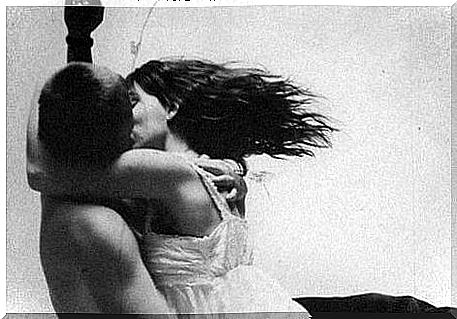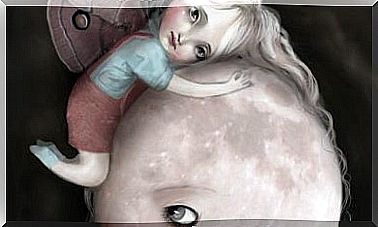Why Do Emotions Affect Us More Than Reason?

People are a mixture of perceptions, feelings and thoughts. All of these elements form a unit, and this unit contributes to the way we are and behave.
Our mind is enormously powerful and very adept at controlling our behavior. For better and for worse. Thanks to our minds, we have different thought processes and are subject to some extraordinarily strong forces: emotions.
Therefore, we can say that we are made of reason and emotion. Forces that sometimes drive us in the same direction. Other times, they confront each other and force us to make a decision. We have the choice between “following our heart” or listening to the list of pros and cons.
Most studies that have analyzed this process in making decisions confirm that emotions often win. This is basically due to the fact that reason is at a higher level on the scale of the subjective experiences. Therefore, one needs more experience, time, and a greater ability to build reason than to let emotions take over.

Emotions: as volatile as air and as dangerous as sulfur
“Emotions” means “movement or impulse” or “something that touches me”. Emotions are subjective experiences that make one act. They basically come from our perception of the world and not from reason. In short, something we perceive as beneficial will evoke pleasant feelings. The same goes for the opposite way.
Many types of behavior in humans depend on emotions. Emotions have a big effect on the decisions we make. In fact, they are typically paramount.

Fear, for example, is a very powerful emotion, according to specialist psychologist Rob Yeung. Therefore, it is often used to influence communication and is an effective political strategy. Besides, it is shame and pride feelings that make people very vulnerable to manipulation.
To explore the source of our emotions
In theory, emotions do not determine anything, but in reality they can determine much. They are innate qualities in humans and seep into all our judgments and actions in life. It is not about denying them, but rather about identifying them. Learning to channel them for our benefit.
There are many examples from everyday life that show how emotions dominate human behavior. For example, when someone thinks they need to be more patient, but then they stand in line or experience a delay. They despair and forget their goals.
Emotions are often controlled by unknown factors. We do not know exactly why we feel intense anger when we are served a cold cup of coffee. Especially when our brain tells us that it’s not that important a thing. We also tend to ignore the reason why we are so afraid to speak in public. Although it’s really something that can be controlled.

The truth is that the forces of emotion come precisely from their infinity, in where they come from and how they develop. They are a diffuse part of us and are sometimes incomprehensible. But deep down, each emotion takes shape according to our survival instincts, species survival, defense, attack, and so on.
Is there a gap between reason and emotion?
The truth is that there is no clear boundary or barrier that separates emotions from reason. In fact, it’s all about dimensions of the human mind that always work together. Emotions are the origin of certain thoughts, and thoughts are the origin of certain emotions.
All emotions are conceived to some degree. When the degree is low, then it provides breeding ground for confusing and erroneous emotions. When the degree of reason is high, you get a deeper and more balanced experience of reality. Emotions that have barely been conceived lead to a distorted experience of reality.

People who call themselves “very sensible” are also covered by this logic. If you look closely enough, then a rejection of the emotions in life will probably result in you having a deep fear of “losing control”, which you allegedly have.
In the same way, imagining purely emotional actions, completely without reason, is more or less absurd. Humans cannot reject or ignore their cerebral cortex unless one has a brain injury. Or when brain functions are inhibited by hormones.
To achieve balance between reason and heart
Emotions are not steep, panicking horses that we should “rein”. They make us human. They help make sense of our world. They must not be “eradicated”, rejected or underestimated.
Quite the opposite: to be able to feel means to be able to be human. Only on the basis of emotions can love, sacrifices, big dreams and big deeds be built. But this does not mean that we can or should leave these feelings in a “raw” state. We should never be content to experience them without reflecting on them.

We achieve balance when we are able to pay attention to how we feel. Not to defend it, but to channel these emotions so that they can benefit us and be useful. This means that if I am scared, then the best option is to acknowledge it. I should explore this feeling and turn it into a force that can benefit me. H hy not? If you are afraid to speak in public, then you should design ingenious, technical aids to help you cope. This helps to confront it.
Emotions affect us more than reason because they are found in a deeper, more primitive part of our brain. They are the source of everything we are. Reason is like a chisel that you can use to polish and soothe your emotions. This can help us achieve a better life.









